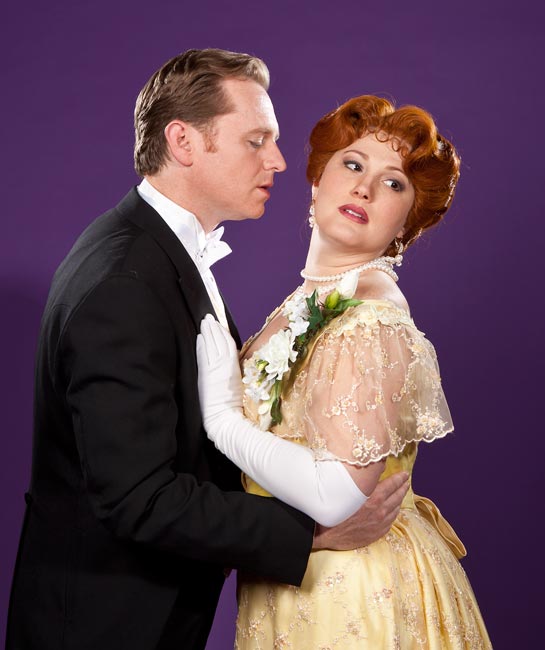Opera Santa Barbara Presents La Traviata
La Traviata at the Granada

When Opera Santa Barbara contracted with artistic director Jose Maria Condemi, the promise was that he would bring the organization to a new level of creativity, coordination, and vision. With Friday night’s premiere of La Traviata, audiences will have a chance to see how Condemi is doing with his new position, and to enjoy one of the opera repertoire’s most cherished pieces. The production has been created here from scratch, with costumes and sets designed especially for this show, and a cast that includes some of the top singers in the world today. I spoke with Condemi last week about his vision for the show and his interpretation of Giuseppe Verdi’s classic tale of a woman compromised in health and reputation who is fighting for control of her destiny.
How are things shaping up? Do you have a good feeling about this show? My expectation is that it will be fantastic. I have a wonderful cast, a Scottish-Welsh cast, unintentionally, [laughs] and an amazing Violetta in Rebecca Davis. I worked with her at the Opera San Jose. She’s a spectacular singer, and she has a rare quality as an actress, as well. She reminds me of Renée Fleming at the beginning—she is so full of life.
Tell me more about the main character. I understand that this is one of opera’s greatest roles. Violetta is an unusually challenging role. It requires two different voices. In the first act, Violetta sings very high, and there’s a lot of coloratura, but then in the rest of the opera, her parts are lower and darker. It’s a combination of things that drives this musical device. It puts the development of Violetta’s character alongside that of her illness for sure, but it is also a commentary in music on her situation in life. As the great courtesan, she is sparkly but devoid of humanity. The way she sings is mostly showy at first, and then Verdi adds dimension to her art as the plot progresses.
What is it about courtesans? Why are they such popular subjects for opera? The title, La Traviata, translates as “the girl gone astray,” and to me the subject and tone illustrate the composer Verdi’s incredible humanism. It is a benevolent account of what it meant to be in this position in that time. In Act Two, Verdi succeeds in showing that Violetta has really turned her life around for love. We believe she has changed, and it is all the more powerful because we are coming out of an Act One in which Violetta has sung “Sempre libera,” an aria in which she expresses convincingly that she wants to be a courtesan for life.
Is a courtesan the same as a prostitute? It is very easy to misunderstand this role, because if you translate “courtesan” into what we think of today as a prostitute, you have missed the point. On the one hand, the system through which people expressed their sexuality in the 19th century could be very hypocritical, and many of those who were most outspoken against sex work were also secretly patrons of courtesans. But there’s more to it even than that, because family life was not the ultimate priority back then that it is today. Women who chose to have families and lead respectable lives were very limited in what they could do. Courtesans enjoyed freedoms that married women, no matter how cultivated, could not access, so it was in that sense a trade-off, and this is what Verdi depicts, the dilemma of the woman who wants to lead a free and public life. After all, what guy in the 19th century would allow his wife to work outside the home or to take a role in culture? This was not done.
What else do you feel people need to understand about your goals with Opera Santa Barbara? I hope that people understand how hard we work as an organization to create a coherent and targeted sequence of specific events every year. The seasons are carefully planned, and every segment, whether it is a concert, as we did in the fall with Patricia Racette, a longer opera like La Traviata, or the one acts that are coming up later in the spring, is fashioned with a goal and an audience in mind.
4•1•1
La Traviata will be presented by Opera Santa Barbara at the Granada Theatre on Friday, March 4, at 7:30 p.m., and on Sunday, March 6, at 2:30 p.m. For tickets and information, call 899-2222 or visit operasb.com.



